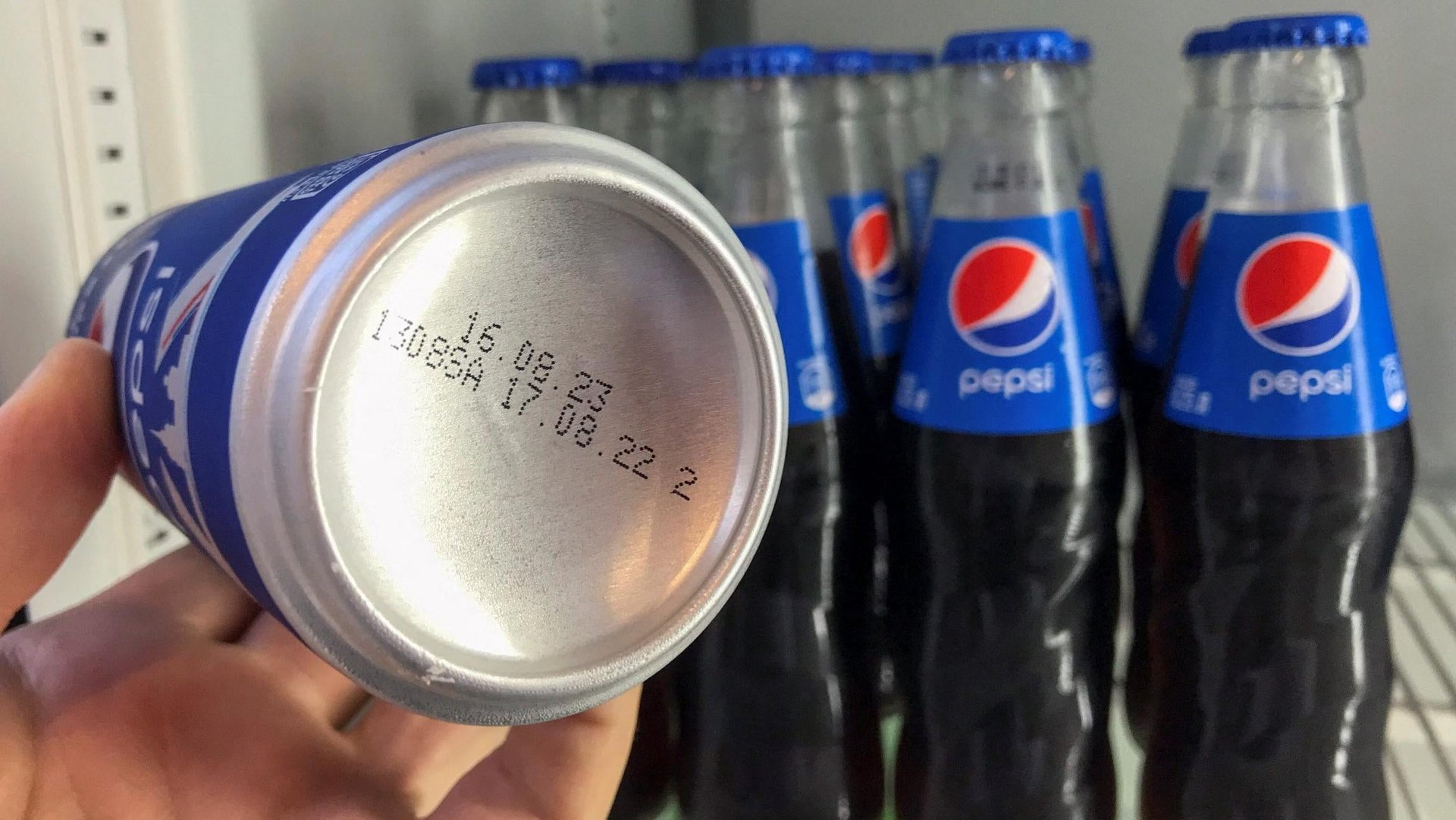It took Pepsi six months to halt production in Russia
The beverage giant was making and selling concentrates for Pepsi, Miranda, 7Up, and Mountain Dew in Russia as recently as mid-August.

In March, PepsiCo had vowed to suspend production and sales of its products in Russia after Moscow invaded Ukraine.
But the New York-headquartered company didn’t cease operations immediately. Products manufactured in Russian factories as recently as mid-August were still found on shelves in Russian stores, an investigation by Reuters revealed.
Now, six months later after that initial promise, PepsiCo seems to have finally made good. The multinational food, snack, and beverage corporation has stopped making concentrates for Pepsi, 7Up, Mirinda, and Mountain Dew in the country, Reuters reported today (Sept. 20).
From one war to another: Pepsi’s Russia connection
Pepsi, which has been selling in Russia for more than 60 years, was among a handful of western products available in Russia prior to the collapse of the Soviet Union in 1991.
“Pepsi-Cola entered the market at the height of the Cold War and helped create common ground between the United States and the Soviet Union,” the company wrote in its March 8 announcement. Initially, Pepsi traded its soda concentrate for Stolichnaya vodka and warships. (The latter briefly made Pepsi the sixth largest military in the world, but it swiftly sold the 17 submarines, a cruiser, a frigate, and a destroyer to a Swedish company for scrap recycling.)
The year before the Russia-Ukraine war, Russia was the PepsiCo’s third-biggest market behind the US and Mexico.
On humanitarian grounds, Pepsi still continues to sell other essentials such as milk and dairy products, baby formula and baby food to Russian civilians as the war continues.
Which US companies have left Russia during the War?
The Ukraine war, which broke out in February, kicked off an exodus of companies from Russia. Notably, the very day in March that Pepsi announced its decision, Coca-Cola, McDonald’s, and Starbucks proclaimed their departures as well.
- As of Sept. 14, Coca-Cola has suspended “certain operations in Russia” but continues to “operate some chains (Costa Coffee),” as per a list of businesses and their Russian connections compiled by Jeffrey Sonnenfeld, a Yale management and leadership professor, and his team.
- In May, McDonald’s arranged to sell its Russian business to Serbian entrepreneur Alexander Govor, its licensee in the market. Under the deal, Govor has to rebrand the McDonald’s 850 locations in Russia and retain the existing staff for at least two years. Already, dozens of McDonald’s outlets have reopened under the name “Vkusno & tochka,” which translates to “Tasty & that’s it.”
- Starbucks, which had 130 outlets in Russia, continued to keep its 2,000 employees on the payroll six months after leaving Russia in May. Its outlets have now been taken over by Stars Coffee, owned by a pro-Putin rapper and restaurateur
Unlikely winners
In Russia’s $8.8 billion non-alcoholic beverages market, local brands are attempting to plug the gaps left behind by Pepsi and Coke.
Chernogolovka, a soft-drinks company named for a town outside Moscow, where it was founded in 1998, has more than doubled its presence in hotels, restaurants and cafes so far this year, and is now supplying Russian outlets of Burger King and KFC, it told Reuters in June.
Another domestic drinks manufacturer, Ochakovo, is drastically increasing its bottling capacity for its CoolCola, Fancy, and Street brands, to replace the quickly disappearing stocks of Coca Cola, Fanta, and Sprite respectively. Ochakovo aims to leap from making 50 million litres to 1.25 billion litres a year.
Related stories